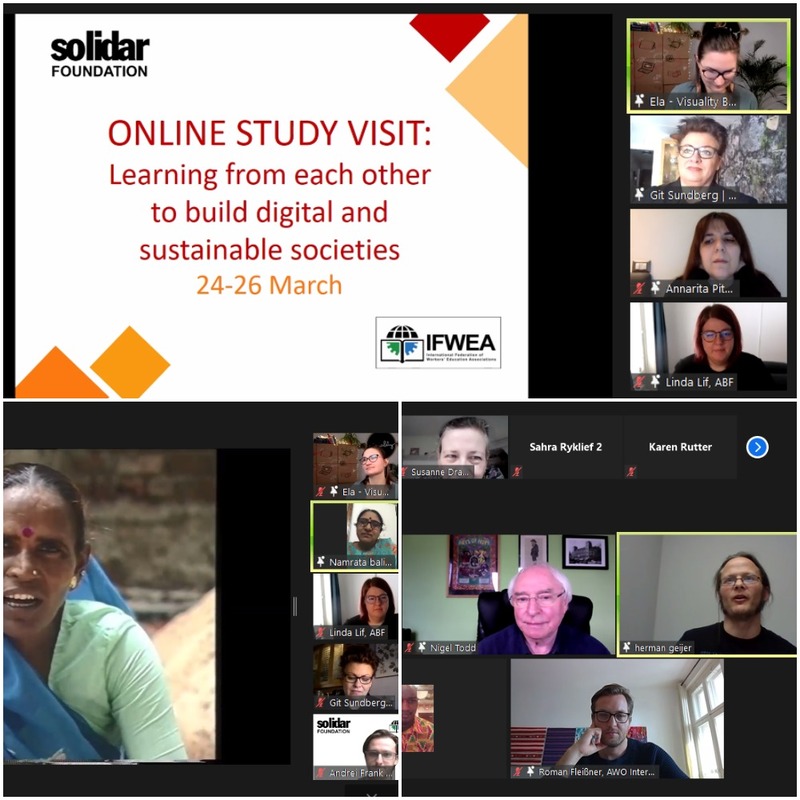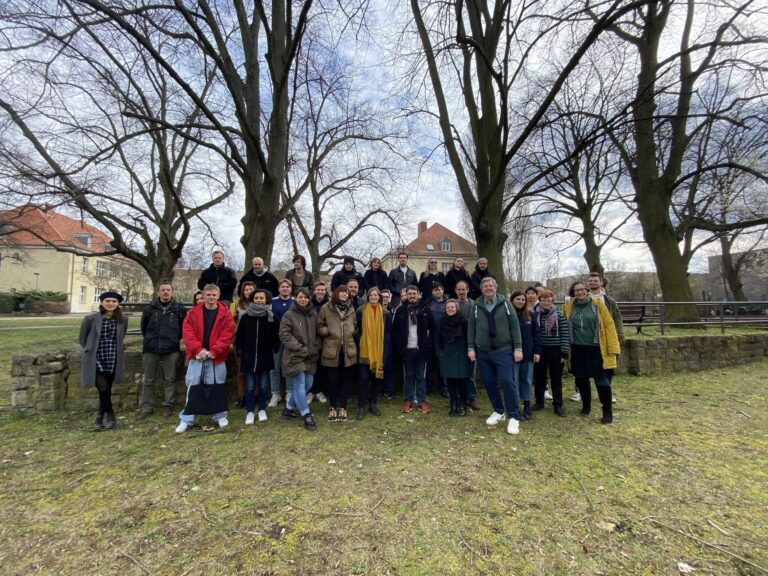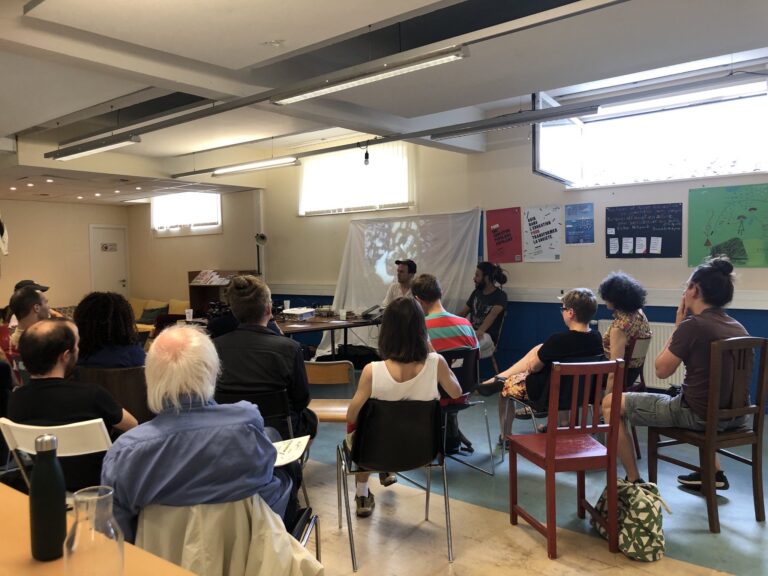Study Visit: Green and Digital Exchanges
On 24-26 March 2021, SOLIDAR Foundation organized its annual study visit for member organisations, in partnership with the International Federation of Workers’ Education Associations (IFWEA) and ABF Sweden. Over 40 participants from across the world joined the online study visit, titled ‘Learning from Each Other to Build Digital and Sustainable Societies’, with the aim of bridging the work of SOLIDAR Foundation members with the one of workers’ education associations, sharing experiences on tackling current global challenges.
The study visit debuted with a panel discussion amongst SOLIDAR Foundation, IFWEA and Workers’ Education Association UK (WEA UK) leaderships on strengthening international partnerships to promote adult education for the green and digital transition. The study visit’s three central sessions explored boosting green competences, adapting lifelong learning activities online and capacity building to facilitate digital activism for informal and non-formal education providers. In discussing the green competences, participants were made aware of the importance of solidarity and empathy in crisis scenarios, highlighting the climate crisis’ urgency through a learning exercise focused on survival techniques during a zombie apocalypse which was developed by ABF Sweden. Considering this crisis, AWO International highlighted to participants the importance of acknowledging that even CSOs leave a carbon footprint behind and have a responsibility to continue their work sustainably, effectively walking the talk. Examples of environmentally-friendly learning and competence building were shared by WEA UK and ZCIEA.

The digital transition sessions shed light on adaptation of learning circles, literacy programmes and cultural activities to the online realm in three countries: Sweden, India and Italy. The sense of isolation, exacerbated by the lack of basic digital skills were emphasized, with speakers from ABF Sweden, ARCI and IASEW expressing willingness to continue digital activities even beyond the health crisis. Participants witnessed examples of organisations that built their capacity to use digital tools daily. CEMEA’s advocacy work on digital ethics was presented, underlining the way data is collected on online users, while users are forced to be part of a centralized internet model which promotes profit-seeking business models. Examples of work from the University of Limerick and from IFWEA covered how skills can be developed through online learning, connecting people from across the world to work together on the global union movement, but also on finding ways to use online tools to boost local community cooperation.
As green and digital competences are needed for a Just Transition, learners worldwide need support. The innovative work of CSOs has been tremendous and SOLIDAR Foundation members were privileged to share the experiences of informal and non-formal learning geared towards making people ready for the global and digital 21st century of workers’ education associations. This cooperation must be upscaled, to ensure that pockets of innovative learning can be mainstreamed, structured and provided to all






